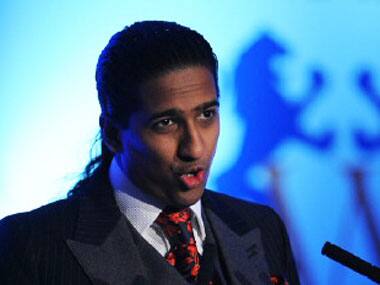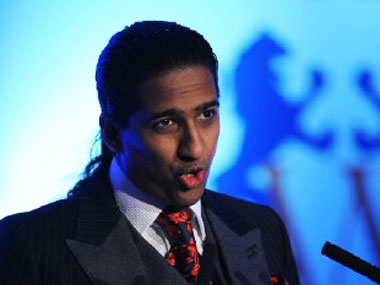Today’s edition of The Economic Times has a very interesting story on the IIPM bossman Arindam Chaudhuri. Chaudhuri sits at the top of an empire of four companies which in 2010-2011 generated revenues of Rs 533 crore, on which there was an overall loss of Rs 5 lakh (but not all the companies were loss making) and an income tax of just Rs 5 crore was paid.
This is typically how most private education institutes in this country tend to operate. While their revenues are decently high, they typically tend to make a loss and pay very low income tax. And there is a clear method to the way they operate.
The money spinning machine at the heart of any education empire is the education institute where students come to study. The same is true in the case of Chaudhuri. The education business remains a major revenue earner within the group. In 2010-2011 its total revenues stood at Rs 349 crore. On this it made a loss of Rs 2.3 crore.
[caption id=“attachment_662657” align=“alignleft” width=“380”]  Most private institutes operate they way Arindam Chaudhry’s company does. PTI[/caption]
Typically in most such cases the education institute doesn’t own any assets. To give you a simple example, the building in which the education institute operates out of might be owned by a private limited company. The private limited company will be in turn owned by the entrepreneur who also runs the education institute. Hence, the rent that is paid by the education institute is legally tunneled out and goes into the pocket of the entrepreneur.
As The Economic Times points out “For example, in 2010-11, the education arm paid Rs 37.6 crore to the consulting arm, Planman Consulting-Rs 31 crore for services received and Rs 6.6 crore as rent.” While it is not specified what this rent was for, it was a rent nonetheless. Planman Consulting is the consulting company of Arindam Chaudhuri. What is interesting is that the education arm was responsible for 84% of the total revenues of Rs 45.8 crore revenues earned by Planman. The company also earned a profit of Rs 7.8 crore whereas the education business made losses.
Impact Shorts
More ShortsThere are other legal ways of tunneling out money. The computers and other infrastructure in the education institute might also not be owned by the institute and may be on rent from a private limited company owned by the entrepreneur or by one of his close relatives. Or if the institute does own the computers, it buys them from a company owned by the entrepreneur.
Similarly insurance contracts that the education institute might enter into are also facilitated through an insurance broker close to the entrepreneur. Another legal way of tunneling out money is through advertisements. The advertisements that are placed in the media are done through an advertising agency owned by the entrepreneur or one of his relatives. The agency gets a cut on this.
Chaudhuri though has taken this trick to the next level by launching his own magazines and placing his own advertisements in them. As The Economic Times points out “The latest issue of The Sunday Indian had 44 edit pages and 19 ad pages (including 10 pages of group ads)….In 2008-09, the latest year for which financials were available for Planman Media, it earned revenues of Rs 41.4 crore. Of this, just Rs 1.6 crore came from magazine sales.” Interestingly claims are made that Chaudhuri’s magazines sell more than magazines like India Today and Outlook in the general segment and more than any other business magazine, in the business segment. So then why is Planman Media earning only Rs 1.6 crore through magazine sales? Also if magazine sales is not bringing in the moolah for Planman Media, what is? Advertisements from other group companies owned by Chaudhuri?
So moral of the story is this. Whenever the education institute spends money on anything there is a private limited company owned by the entrepreneur waiting to capture it. In fact, entrepreneurs further tunnel out money even from these private limited companies by giving themselves high salaries.
Chaudhuri is no exception to this. As The Economic Times points out “Chaudhuri and his wife, Rajita, who are executive directors in Planman Consulting, drew a total remuneration of Rs 6.96 crore from the company that year.” So Chaudhuri and his wife took away more than 15% of the Rs 45.8 crore revenue of Planman Consulting as a remuneration.
Entrepreneurs have other innovative ways of tunneling out money. They set up placement agencies. And these agencies get paid for placing students as well as appointing teachers at the education institute. Interestingly, some of the biggest private business schools in the country (including IIPM) tend to place their ‘unplaced’ students in one of the group companies. The idea is of course to show decent placements. Other than that it gives these students a little more time to find themselves a decent job. And once they do that on their own, the institute can always claim that they were placed by the institute.
Of course, if the student is unable to find a new job within a certain time period, he or she is asked to leave, given that by then a new batch of students is ready to be placed. The institutes can afford to do this because of the high fees that they charge for their courses. If some of it goes back to the student, it does not do them much harm. It’s all a part of the game.
To get back to the main story, the question is why do education institutes do this? As The Economic Times points out “An accounting expert, speaking on the condition of anonymity, says it’s a common industry practice for the education arm to show losses and group companies that provide services to this company to earn profits. “Promoters adopt this to circumvent Indian regulation, which prohibits profitmaking companies in the education sector,” he says. “But firms that provide services to the company that runs the education business are not bound by it.”
This essentially ensures that the education entrepreneur surrounds the institute with a web of private limited companies and uses them legally to tunnel out the revenue being generated out of the fees that students pay the institute. Of course, everyone does not operate at the same scale and is not as successful as Arindam Chaudhuri is.
There is a scope for great debate here. Why can’t education be a profitable business? This specially in a country where education is in such short supply. Ironically, private equity investors have been greater investors in coaching institutes which coach students to get into education institutes or sit for various board exams. But given that the education institutes are not supposed to be profitable in a normal way, these investors have stayed away.
And entrepreneurs who have entered the education business are more interested in making a quick buck, rather than building an infrastructure which provides quality education at a decent price over a long period of time. Typically big private money has stayed away from this sector. Those who have entered it are typically politicians, who are good at financial shenanigans and are looking to put their black money to some use.
Vivek Kaul is a writer. He tweets @kaul_vivek. He studied in a private business school. And also worked for one.


)

)
)
)
)
)
)
)
)



